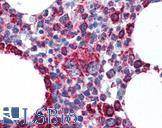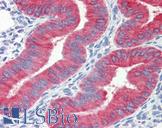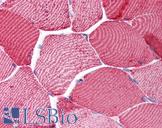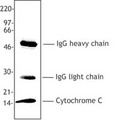Login
Registration enables users to use special features of this website, such as past
order histories, retained contact details for faster checkout, review submissions, and special promotions.
order histories, retained contact details for faster checkout, review submissions, and special promotions.
Forgot password?
Registration enables users to use special features of this website, such as past
order histories, retained contact details for faster checkout, review submissions, and special promotions.
order histories, retained contact details for faster checkout, review submissions, and special promotions.
Quick Order
Products
Antibodies
ELISA and Assay Kits
Research Areas
Infectious Disease
Resources
Purchasing
Reference Material
Contact Us
Location
Corporate Headquarters
Vector Laboratories, Inc.
6737 Mowry Ave
Newark, CA 94560
United States
Telephone Numbers
Customer Service: (800) 227-6666 / (650) 697-3600
Contact Us
Additional Contact Details
Login
Registration enables users to use special features of this website, such as past
order histories, retained contact details for faster checkout, review submissions, and special promotions.
order histories, retained contact details for faster checkout, review submissions, and special promotions.
Forgot password?
Registration enables users to use special features of this website, such as past
order histories, retained contact details for faster checkout, review submissions, and special promotions.
order histories, retained contact details for faster checkout, review submissions, and special promotions.
Quick Order
| Catalog Number | Size | Price |
|---|---|---|
| LS-C390833-7 | 7 ml | $574 |
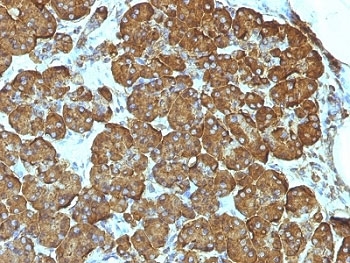
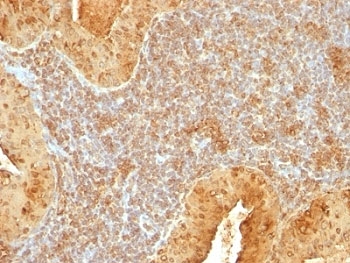


1 of 2
2 of 2
Monoclonal Mouse anti‑Pigeon CYCS / Cytochrome c Antibody (clone 7H8.2C12, Ready‑to‑Use, aa1‑80, aa81‑104, aa66‑104, IHC) LS‑C390833
Monoclonal Mouse anti‑Pigeon CYCS / Cytochrome c Antibody (clone 7H8.2C12, Ready‑to‑Use, aa1‑80, aa81‑104, aa66‑104, IHC) LS‑C390833
Antibody:
CYCS / Cytochrome c Mouse anti-Pigeon Monoclonal (aa1-80, aa81-104, aa66-104) (Ready-to-Use) (7H8.2C12) Antibody
Application:
IHC, IHC-P
Reactivity:
Pigeon, Human, Mouse, Rat
Format:
Unconjugated, Ready-to-Use
Other formats:
Toll Free North America
 (800) 227-6666
(800) 227-6666
For Research Use Only
Overview
Antibody:
CYCS / Cytochrome c Mouse anti-Pigeon Monoclonal (aa1-80, aa81-104, aa66-104) (Ready-to-Use) (7H8.2C12) Antibody
Application:
IHC, IHC-P
Reactivity:
Pigeon, Human, Mouse, Rat
Format:
Unconjugated, Ready-to-Use
Other formats:
Specifications
Description
Cytochrome c antibody LS-C390833 is an unconjugated mouse monoclonal antibody to Cytochrome c (CYCS) (aa1-80, aa81-104, aa66-104) from pigeon. It is reactive with human, mouse and rat. Validated for IHC.
Target
Pigeon CYCS / Cytochrome c
Synonyms
CYCS | CYC | HCS | THC4 | Cytochrome c | Cytochrome c, somatic
Host
Mouse
Reactivity
Pigeon, Human, Mouse, Rat
(tested or 100% immunogen sequence identity)
Clonality
IgG2b,k
Monoclonal
Clone
7H8.2C12
Conjugations
Unconjugated
Purification
Protein G purified
Modifications
Ready-to-Use.
Also available Unmodified or Azide-free, BSA-free.
Immunogen
Synthetic peptides corresponding to amino acid 1-80, 81-104 and 66-104 of pigeon Cytochrome C.
Epitope
aa1-80, aa81-104, aa66-104
Applications
- IHC
- IHC - Paraffin (1:1)
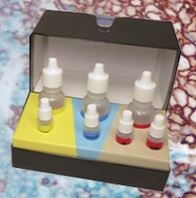
|
Performing IHC? See our complete line of Immunohistochemistry Reagents including antigen retrieval solutions, blocking agents
ABC Detection Kits and polymers, biotinylated secondary antibodies, substrates and more.
|
Usage
The applications listed have been tested for the unmodified form of this product. Other forms have not been tested. It recognizes an epitope within amino acids 93-104 of pigeon Cytochrome C, a well-characterized mobile electron transport protein that is essential to energy conversion in all aerobic organisms. In mammalian cells, this highly conserved protein is normally localized to the mitochondrial inter-membrane space. More recent studies have identified cytosolic cytochrome c as a factor necessary for activation of apoptosis. During apoptosis, cytochrome c is trans-located from the mitochondrial membrane to the cytosol, where it is required for activation of caspase-3 (CPP32). Overexpression of Bcl-2 has been shown to prevent the translocation of cytochrome c, thereby blocking the apoptotic process. Overexpression of Bax has been shown to induce the release of cytochrome c and to induce cell death. The release of cytochrome c from the mitochondria is thought to trigger an apoptotic cascade, whereby Apaf-1 binds to Apaf-3 (caspase-9) in a cytochrome c-dependent manner, leading to caspase-9 cleavage of caspase-3. This mAb recognizes total cytochrome C which includes both apocytochrome (i.e. cytochrome in the cytosol without heme attached) and holocytochrome (i.e cytochrome in the mitochondria with heme attached). Optimal dilution of the Cytochrome C antibody should be determined by the researcher. Staining of formalin-fixed tissues requires boiling tissue sections in 10mM Citrate buffer, pH 6.0, for 10-20 min followed by cooling at RT for 20 min. The prediluted format is supplied in a dropper bottle and is optimized for use in IHC. After epitope retrieval step (if required), drip mAb solution onto the tissue section and incubate at RT for 30 min.
Presentation
1X PBS, 0.1 mg/ml BSA, 0.05% sodium azide
Storage
Store at 2°C to 8°C.
Restrictions
For research use only. Intended for use by laboratory professionals.
About CYCS / Cytochrome c
Publications (0)
Customer Reviews (0)
Featured Products
Species:
Pigeon, Human, Mouse, Rat, Hamster, Horse, Drosophila
Applications:
IHC, IHC - Paraffin, ICC, Western blot
Species:
Horse, Human, Monkey, Mouse, Rat, Bovine, Guinea pig, Hamster, Pig, Rabbit, Sheep
Applications:
IHC, IHC - Paraffin, Western blot
Species:
Human, Mouse, Rat
Applications:
Immunofluorescence, Immunoprecipitation, ELISA
Species:
Human, Mouse, Rat, Dog
Applications:
Immunofluorescence, Western blot, Immunoprecipitation
Species:
Horse, Human, Mouse, Rat
Applications:
IHC, IHC - Paraffin, Western blot
Species:
Mouse, Human, Rat
Applications:
Immunofluorescence, Western blot, Immunoprecipitation, Flow Cytometry
Request SDS/MSDS
To request an SDS/MSDS form for this product, please contact our Technical Support department at:
Technical.Support@LSBio.com
Requested From: United States
Date Requested: 4/4/2025
Date Requested: 4/4/2025

